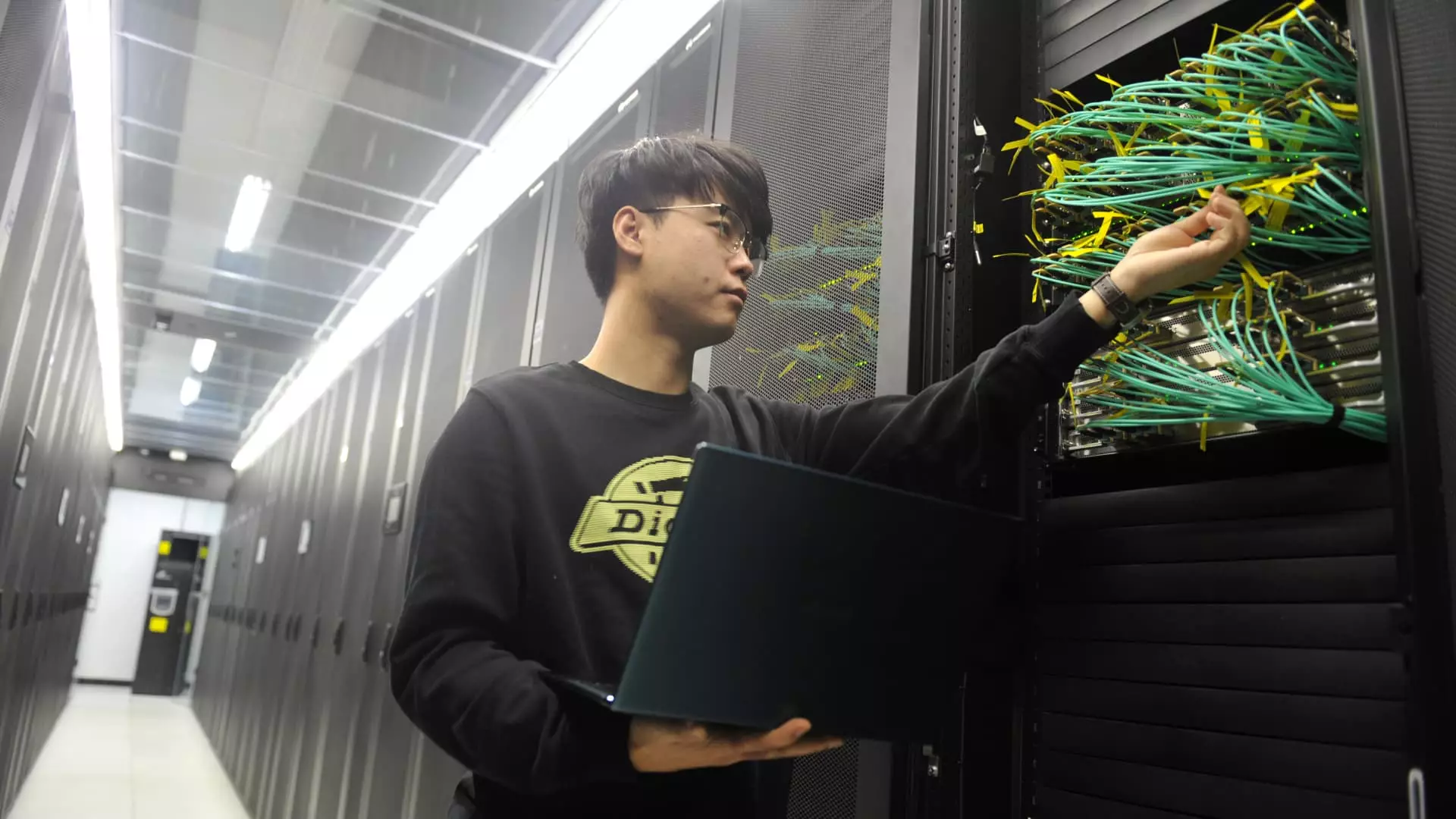The economic rivalry between the U.S. and China has morphed into a relentless battlefield, punctuated by tariffs and trade restrictions that undermine global stability. As diplomatic negotiations falter, the fallout from these escalating tensions will not merely affect trade balances but will create deep divisions in the technological landscape. Amidst this chaos, however, Chinese companies, particularly those focusing on generative artificial intelligence, are poised to capture newfound opportunities. While it’s tempting to view this as a pure economic evolution, it’s crucial to scrutinize the broader implications of such a scenario.
In their analysis, financial firms such as Bernstein have identified a silver lining for Chinese tech companies harnessing AI technologies. The chaotic backdrop of trade escalations serves as a catalyst for these firms to pivot their strategies towards self-reliance and technological independence. The remark by Bernstein analyst Boris Van — that AI demand will remain buoyant — may be true, but it raises critical questions about whether these advancements serve merely as a band-aid over a gaping wound or as sustainable solutions. Will these companies transform the competitive landscape or amplify existing disparities?
Generative AI: A Double-Edged Sword
Generative AI technologies like DeepSeek represent not just a trend, but a cornerstone of China’s strategy to dominate the tech sphere. While this may herald cost savings for companies and potentially provide a degree of financial resilience, it also highlights the extent to which China is abandoning reliance on foreign technology, particularly during these aggressive trade skirmishes. The pivot of companies like Kingsoft and Kingdee suggests a cultural shift towards self-sufficient innovation. But should we applaud this development, or view it with skepticism?
What’s alarming here is the possibility that this technological drive could serve as an excuse for state-supported monopolization, inviting less competitive practices while stifling international collaboration. Will these firms, buoyed by state directives, hold the ethical high ground in AI applications? History suggests that in an environment fueled by nationalism, ethical considerations may take a backseat. If the likes of Huawei and others dominate the AI landscape, we could inadvertently be paving the way for more authoritarian oversight under the guise of technological advancement.
The Current Market Landscape: Promoting Isolationism?
The economic data emerging from firms like Goldman Sachs and Citi is sobering, reflecting revisions in China’s economic growth forecasts which tie back to rising tariff disparities. This paints a grim picture of a market environment that not only operates in isolation but is potentially geared towards self-sustenance at a high cost. Indeed, we see Chinese companies like GDS and Vnet thriving — but is this resilience a good omen for the global market or an indicator of deeper isolation?
When government backing fuels a tech sector, it can lead to rapid advancements. However, these advancements may come at the cost of reciprocal international growth and innovation. With localization policies taking root, could we be witnessing a trend in global markets where trade relations deteriorate to an extent that innovation becomes stunted outside major economies? Simply put, when nations prioritize local technology over collaborative opportunity, they also risk a dilution of standards and shared knowledge.
Corporate Ambitions vs. National Loyalties
One cannot ignore the irony that as domestic AI companies embrace the promise of new technology, they may find themselves shackled by the nationalistic fervor that drives their growth. When Kingsoft’s ambitious rise is bolstered by China’s need for technological independence, how does this impact their integrity on the global stage? As they branch out across borders — whether we look at their WPS app or their adaptation for HarmonyOS — we see a contradiction between corporate ambitions and the realities of national allegiance.
This leads to a potent dilemma: as these companies grow, should we celebrate their achievements as progress against adversity or question the motivations that fuel their successes? In a world where collaboration breeds innovation, the dichotomy between sovereignty and cooperation becomes stark, raising pressing ethical considerations.
Mistrust has bred a fertile ground for innovative developments devoid of checks and balances, where companies might prioritize growth over corporate responsibility. While the economic aspirations of local firms are understandable in their context, the implications of fostering local champions in a globally interconnected economy remain troubling.
Our evolving understanding of technology should be transformative, not merely transactional. As China leaps into the realms of AI and beyond, the implications of this trade war extend far beyond economics; they shake the very foundations of how we perceive global collaboration in innovation.

